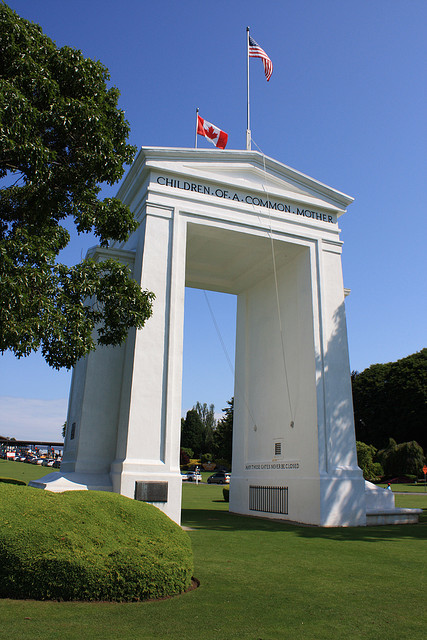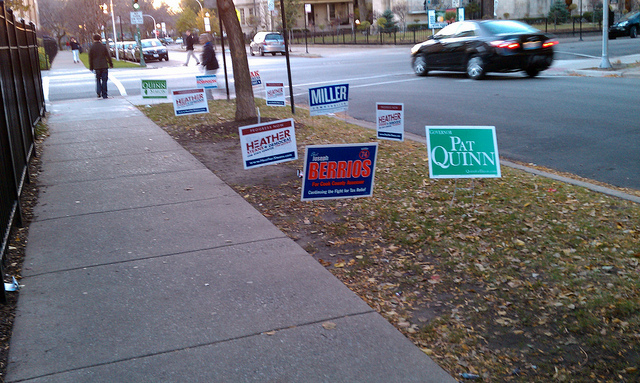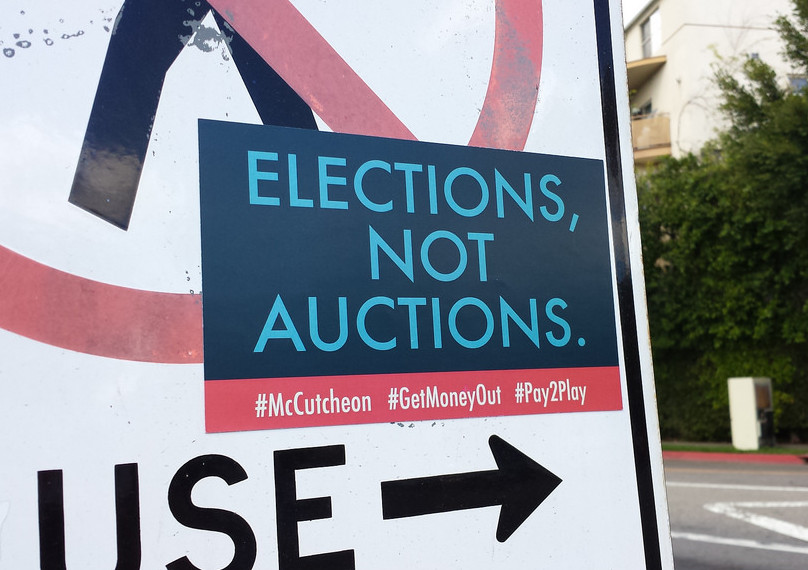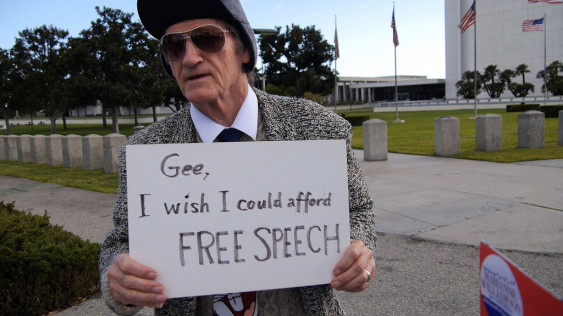Research by Jane Harvey
To understand how money corrupts democracy in the United States, especially in the Northwest states, look north to Canada. What you’ll see is that campaign fundraising is radically different on the two sides of the 49th parallel. It hasn’t always been, but it is now. The differences, and how they developed, reveal just how profound the impacts of US Supreme Court rulings have been on the systemic corruption of politics.
On the south side, elected officials spend their lives dialing for dollars. Citizens United and related Supreme Court cases reign: corporations are persons; money is speech; and the only kind of corruption that’s illegal is the kind that actually involves buying votes with money. Candidates spend without limits, as do “independent expenditure” (IE) campaigns such as those orchestrated by super-PACs. Individual contributions to campaigns are putatively restricted, but any fundraising chair worth her salt can find a way to launder funds through back channels. Individual and corporate contributions to IEs are utterly unrestricted, can sometimes be done anonymously, and IEs are not really independent anyway. Almost every political dollar comes from private donors, often from lobbyists; public funding is isolated in a few outposts of good-government zeal such as Connecticut and Maine. Finally, campaigns can and do run for months on end, laying siege to swing voters and blitzing them with television ads.
On the north side, politicians spend their lives talking with voters and governing. They almost never dial for dollars, er, loonies. A recent legislative leader of one of BC’s political parties reports that he focused time and energy on fundraising about twice a week when he was leader. He didn’t dial for dollars. Compare that to spending half of each day on it, as many American politicians do. Fundraising used to be even less time-consuming. A former premier of British Columbia who spent 24 years in elective office reports spending almost no time raising money; his party raised some but he wasn’t much involved. A former member of the Canadian parliament tells much the same story: a group of volunteers raised some money for his campaign, but he personally spent his campaign time, well, campaigning. One former city councilor in Vancouver remembers raising just $10,000 total (a rounding error in an American campaign) for each of his races. He says he never raised a single dollar, not one, outside of campaign season.





